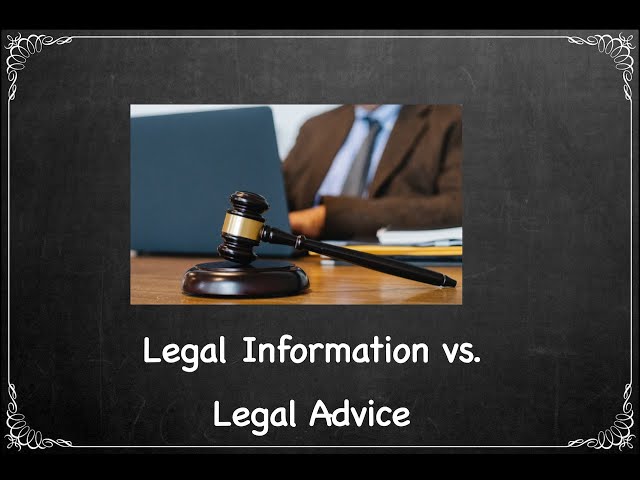
When dealing with legal matters, it is important to understand the distinction between legal information and legal advice. Although the two may seem interchangeable, they serve different purposes and come from different sources. Misunderstanding this difference can lead to confusion or even unintended legal consequences.
Legal advice differs from general legal information. While legal information explains the law in broad terms, legal advice applies the law to your specific circumstances. For example, legal advice could involve interpreting a contract, outlining possible legal actions, or recommending a strategy to resolve a dispute.
Engaging a qualified legal professional can make a significant difference in handling legal matters. The benefits of seeking legal advice include:
Certain situations necessitate professional legal guidance:
Legal information refers to general facts about laws, regulations, and legal processes. It is broad and does not consider the unique circumstances of an individual case. Legal information is publicly accessible and is designed to educate or inform, not guide specific decisions.
Examples of Legal Information:
Sources of Legal Information:
Legal information can help you understand the basics of the law, but it does not address how the law applies to your specific situation.
| Aspect | Legal Information | Legal Advice |
|---|---|---|
| Scope | General, applies broadly to everyone. | Specific, tailored to an individual’s case. |
| Source | Public resources, websites, books, or seminars. | Licensed attorneys or qualified professionals. |
| Guidance Provided | No personalized guidance or recommendations. | Recommends specific actions or strategies. |
| Legal Protection | Does not establish attorney-client privilege. | Protected under attorney-client privilege. |
| Authority | Does not create legally binding relationships. | Can be binding in legal representation. |
Confusing legal information with legal advice can have serious consequences. For example, using a generic legal form obtained online might not comply with local laws or address your unique needs. This can result in invalid agreements or unforeseen legal risks.
Additionally, relying on general information for complex legal issues can lead to incorrect interpretations or missed opportunities to protect your rights. Personalized legal advice ensures that your specific situation is properly addressed.
Legal advice is essential for navigating the complexities of the law. Whether dealing with contracts, disputes, criminal charges, or family matters, obtaining guidance from a qualified legal professional can protect your rights, save time, and prevent costly mistakes. Always seek personalized advice to address your unique situation and ensure the best possible outcome.